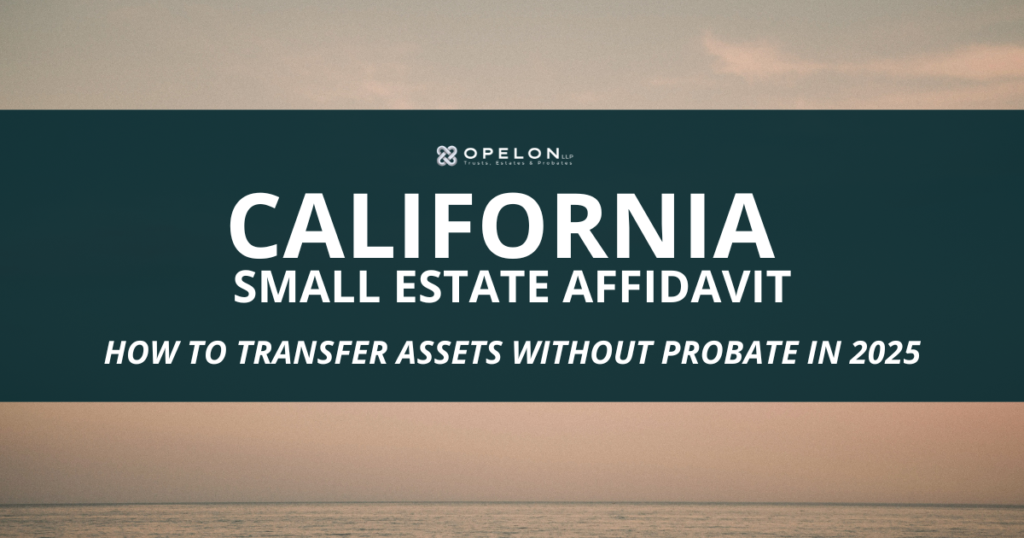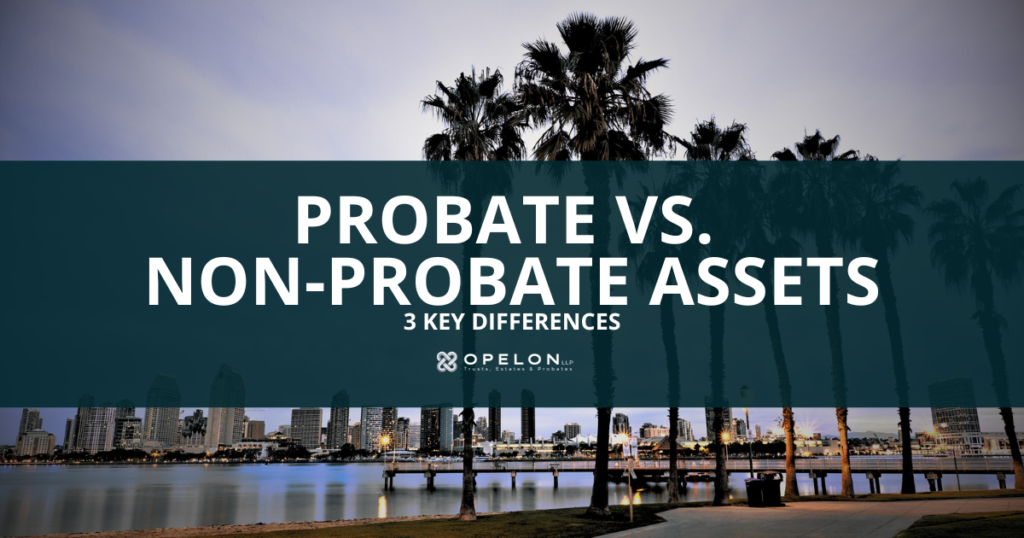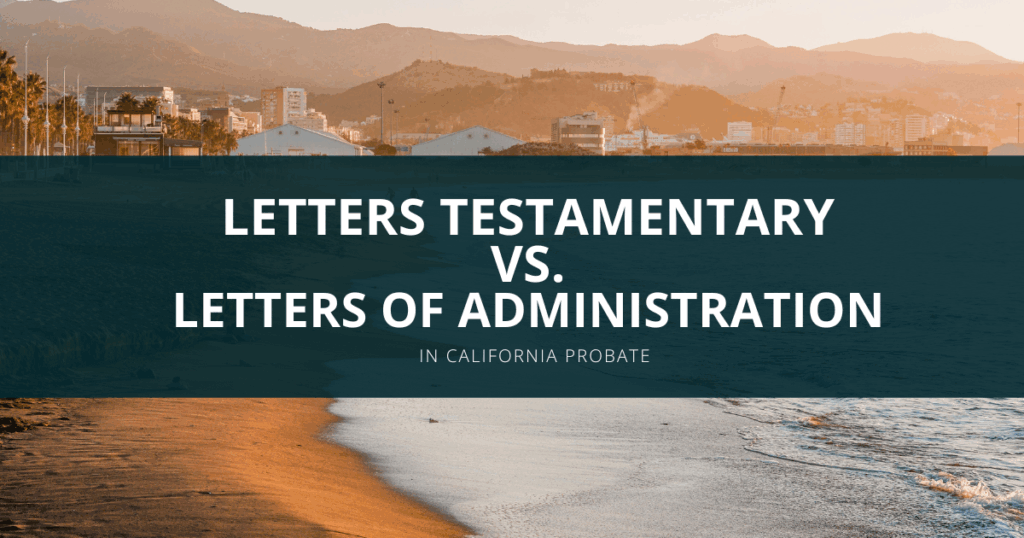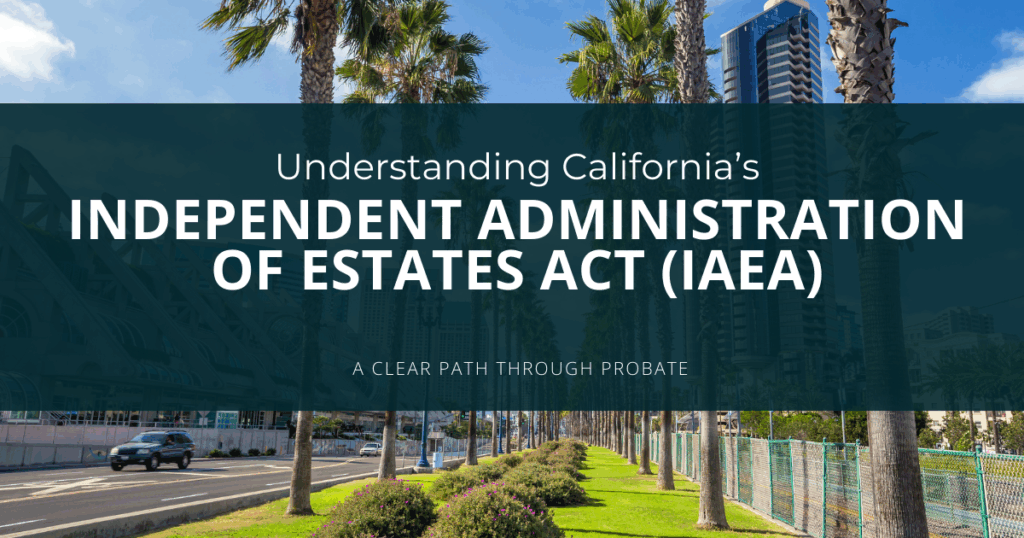Inventory and Appraisal in San Diego Probate: 8 Critical Steps

The inventory and appraisal is one of the most important documents you will file as an executor, yet most families have never heard of it until they are facing a four-month deadline. This court-required accounting of estate assets determines everything from probate fees to how quickly your loved one’s estate can close. Learn exactly what is required, who values what, and how to avoid the costly mistakes that delay San Diego probate cases.
California Small Estate Affidavit: How to Transfer Assets Without Probate in 2026

A California small estate affidavit could save your family months of waiting and thousands of dollars in court costs. If your loved one’s estate is valued at $208,850 or less, you may be able to collect their bank accounts, investments, and personal property without ever stepping foot in probate court. Here’s exactly how the process works and whether you qualify.
Probate vs Non-Probate Assets: 3 Key Differences

Understanding probate vs non probate assets can save California families months of waiting and thousands in court costs. Learn which assets must go through probate court and which transfer directly to beneficiaries. This guide covers California thresholds, timelines, and strategies to minimize probate exposure.
Lessons From the Juice: What OJ Simpson’s Estate Teaches Us in 2025

When OJ Simpson died in 2024, the drama didn’t end; it simply moved from the courtroom to the probate court. Overnight, his estate became a national spectacle: massive debts, a decades-old wrongful death judgment, missing assets, and a trust that raised more questions than answers. But behind all the headlines lies something far more important than celebrity intrigue. Simpson’s estate is a real-world reminder of what can go wrong when lawsuits, creditors, and complicated family dynamics collide and why everyday families need to plan ahead long before chaos hits.
What is an Executor? 7 Essential Executor Duties in California Probate

Serving as an executor in California can feel overwhelming, especially when you’re grieving and trying to make the right decisions for your family. This article breaks down, in plain English, what an executor does, how the probate process works in San Diego County, common pitfalls to avoid, and when it makes sense to partner with a local probate attorney so you can move forward with clarity and confidence.
Navigating a Heggstad Petition in San Diego: Understanding Probate Code § 850 for Trust Asset Transfers

Gain insights into Heggstad petitions in San Diego. This key guide explains the probate code § 850 and offers trustees and beneficiaries a streamlined way to confirm that assets left out of a trust were still intended to be included. This process avoids the delays of full probate while ensuring a decedent’s intent is honored. Learn how this petition works and why it is a vital tool in California trust administration.
Letters Testamentary vs Letters of Administration in California Probate (5 differences for clarity)

Understanding the difference between Letters Testamentary vs Letters of Administration is crucial for anyone navigating California probate. These court-issued documents determine who has legal authority to manage an estate—executors under a valid will receive Letters Testamentary, while administrators are appointed through Letters of Administration when no will exists or the named executor cannot serve.
California’s Independent Administration of Estates Act (IAEA) in 2026

The Independent Administration of Estates Act (IAEA) gives California executors and administrators a streamlined way to handle probate with fewer court approvals and reduced delays. By granting broader authority to personal representatives, the IAEA allows estates to be managed more efficiently—helping families save time, cut costs, and avoid unnecessary stress.
Selling a House in San Diego Probate: Step-by-Step California Guide (2026)

Selling a house in probate can be challenging. This expert guide outlines crucial steps when selling a house in San Diego probate, clarifying legal processes and options for personal representatives.
Navigating California Probate: Your Guide to the 3 Different Types of California Probate

Understanding the different types of probate in California is essential for families who are navigating the estate process after losing a loved one. Depending on the value of the estate and the kinds of assets involved, probate can take several forms—from formal probate for larger estates, to simplified summary probate for mid-sized estates, to the use of a small estate affidavit for quicker transfers. Each option has unique requirements, timelines, and benefits, and knowing which path applies can save both time and expense during an already difficult period.


